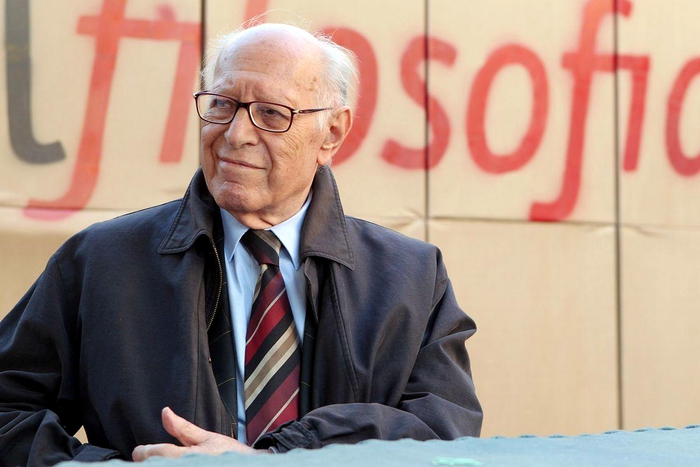The philosopher Emanuele Severino died. He disappeared in Brescia on January 17th but was only known today, by his will.
The philosopher, who would have turned 91 on February 26, has already been cremated. Severinus was considered one of the greatest living philosophers, writers and intellectuals.
"Approaching death is approaching joy, but I refer to overcoming every contradiction that goes through our life because we are constantly in imbalance and instability: reincarnation or resurrection does not await us, but something infinitely more". This is how Emanuele Severino, who died on 17 January in Brescia, wrote and repeated often in his lectures and meetings, but it was only known today, who had turned 90 on 26 February 2019. A radical thought, his, which for the denial of 'becoming' led him to a conflict with the Catholic Church to the point that in 1968, 4 years after publishing 'Return to Parmenides', at his request a trial was instructed by the former Holy Office, who declared the his philosophy incompatible with Christianity. A thought that Severinus, considered one of the greatest philosophers, writers and intellectuals of the twentieth century, cultivated by referring, in addition to Parmenides, to Aristotle, Heraclitus, Hegel, Nietzsche, Leopardi. For the Brescia philosopher, the West lives in nihilism, or in the belief that things, all things come out of nowhere and return to it. In the numerous books published since the 1950s, Severino showed instead that everything, even the most insignificant things are eternal by necessity and the belief that all things come out of nowhere and return to it is "extreme madness". Man has always sought the remedy for terror before pain and death. He searched for it with myth, poetry and religion and in this context he deepened the thought of Aeschylus but also of Giacomo Leopardi in books such as 'Il Giogo' and 'Cosa arcana e stupenda'. Of particular note then his studies on technology - the supreme force destined to dominate the world and to which the great forces of tradition also subject themselves: Christianity, capitalism, socialism, humanism - up to his last book, 'Testifying the destiny "( Adelphi). A path that began when he was only 23. He graduated the year before in Pavia and, a professor at the Catholic University, wrote 'The original structure', a book that also passionately read the future cardinal of Milan Angelo Scola, then his pupil. For his ninetieth birthday, Brescia, where he was born on February 26, 1929, had celebrated him with a day between reflection and theater. The centerpiece of the event was Aeschylus' Orestea, which Severino translated in 1985 for Rizzoli and Franco Parenti and Andrée Ruth Shammah used for the historical staging of the Aeschylean trilogy in 1986. The translation was followed by Il giogo, the fundamental essay on the figure and the work of Aeschylus, and to Adelphi in 1989. A cast of 13 actors had given voice to some of the most significant passages of the Aeschylean trilogy. The anthology of steps, selected by Severino himself, had featured some of the major artists of the Italian scene such as Ottavia Piccolo, Graziano Piazza, Federica Fracassi and Fausto Cabra, accompanied by a chorus of 9 young actresses and actors.

